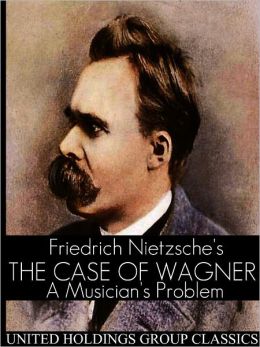Nietzsche essentially recognizes Wagner's skill at evocative, indulgent histrionics. This is, however, a skill that Nietzsche sees as indicative of a weak and unmanly approach to art.
Notes of interest to possibly no one else but me (page numbers correspond to my digital edition):
- “And let it be said en passant that if Wagner’s theory was ‘drama is the object, music is only a means’ – his practice was from beginning to end ‘the attitude is the end, drama and even music can never be anything else than means.” p. 47
- “In the theatre, no one brings the finest senses of his art with him, and least of all the artist who works for the theatre, - for here loneliness is lacking; everything perfect does not suffer a witness… In the theatre one becomes mob, herd, woman, Pharisee, electing cattle, patron, idiot – Wagnerite: there, the most personal conscience is bound to submit to the leveling charm of the great multitude, there the neighbour rules, there one becomes a neighbour.” P. 47/48
- “In the solemn, or fiery, swinging movement, first slow and then quick, of old music – one had to do something quite different; one had to dance. The measure which was required for this and the control of certain balanced degrees of time and energy, forced the soul of the listener to continual sobriety of thought. – Upon the counterplay of the cooler currents of air which came from this sobriety, and from the warmer breath of enthusiasm, the charm of all good music rested – Richard Wagner wanted another kind of movement, - he overthrew the physiological first principle of all music before his time. It was no longer a matter of walking or dancing, - we must swim, we must hover…” p. 48
- “…there are two kinds of sufferers: - those that suffer from overflowing vitality, who need Dionysian art and require a tragic insight into, and a tragic outlook upon, the phenomenon life, - and there are those who suffer from reduced vitality, and who crave for repose, quietness, calm seas, or else the intoxication, the spasm, the bewilderment which art and philosophy provide.” p. 51
- “I began to understand Epicurus, the opposite of a Dionysian Greek, and also the Christian who in fact is only a kind of Epicurean, and who, with his belief that ‘faith saves,’ carries the principle of Hedonism as far as possible – far beyond all intellectural honesty…” p. 51

No comments:
Post a Comment